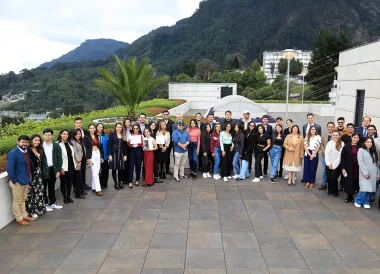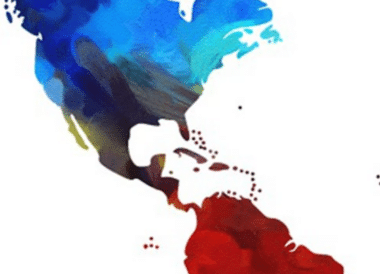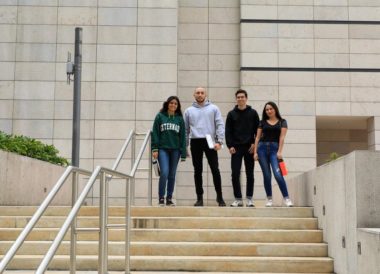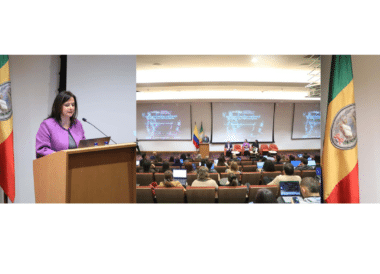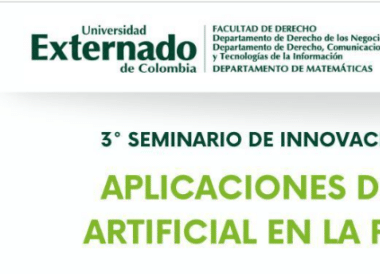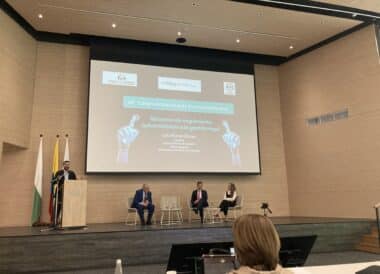22 de agosto de 2016
Enabling Inclusive and Sustainable Growth through internet governance
Developing countries have the challenge to work upon inclusive and sustainable growth. Open market and economic growth may not have a direct positive impact in reducing poverty and improve equality.
Developing countries have the challenge to work upon inclusive and sustainable growth. Open market and economic growth may not have a direct positive impact in reducing poverty and improve equality[1]. Moreover, recent economic research has brought some reflections over public policy when facing distribution of wealth and its consequences (2013, Capital in the Twenty-First Century, Thomas Piketty). A multi-stakeholder Internet governance may contribute to reach the goal of inclusive and sustainable development.
UNPD claims poverty can be confronted by inclusive development. Inclusive growth may have considerations to bring up all people, regardless the circumstances of gender, ethnic origin, age, sexual orientation, disability, or poverty. Development may be achieved, and reduce poverty, “only if all groups of people contribute to creating opportunities, share the benefits of development and participate in decision-making”[2].
United Nations has also proposed 17 sustainable development goals. These are aimed to end poverty, protect the planet and ensure prosperity for all[3]. To have the results over the next 15 years, we have to engage with the targets today. The cornerstone is to summon a multi-stakeholder agenda. Governments, private sector, civil society and individuals are urged to take action[4].
It is not a secret that the digital economy brings benefits for developing countries. To gain profit of it, infrastructure as well as modern legislation and capacity building may be required. Regional and local reports have measured the impact for local economies; however, there are still duels to be faced[5] and more inclusive and sustainable growth is required[6]. Colombia has gained leadership in the region; has adopted regulation or has modernized its law[7], as well as the implementation of public policy on ICT infrastructure. Work is to be done, though.
As a consequence of the nature of internet, how it develops and works, it has been acknowledge to become a global facility available to the public. Under UN auspices, at WSIS first phase meeting it has been recognized that “the international management of the Internet should be multilateral, transparent and democratic”[8]. In terms of the WSIS meeting in Tunes, a multi-stakeholder atmosphere shall determine the development and application of shared principles, norms, rules, decision-making procedures and programmes that shape the evolution and use of the Internet[9]. Again, a collaborative participation of governments, private sector, civil society and international organizations from both developed and developing countries is required.
The use of new technologies has empowered communities. This may not be true only for contemporary times. In Colombia, for example, the radio enabled hundreds of people in rural areas to achieve a scholar grade. In more recent times, as a result of the national public policy on providing ITC infrastructure and consequently connectivity, a new scenario has raised for Colombia. Application developers, and the opportunity to provide services using internet has become the new standard for local economies. Yet challenges may be overcome.
Colombia has recognize the importance of internet governance in a multi-stakeholder scenario. So far the National Commission on Communications has lead and call other governmental entities to join the discussions over internet regulation in a multi-stakeholder format[10]. Multi-stakeholders had been call to comment on local regulations regarding digital security and ITC users’ protection policy.
Concluding, internet governance empower communities who are willing to take advantage of the digital economy. Again internet may lever up the possibilities to positively touch people and give additional possibilities to those who are excluded from the economy. In addition the use of ITC for access, capacity building, giving visibility or sharing experiences, may grant inclusiveness. Such benefits may not be achieved if the definition of internet regulation and policies are reserved to some. The internet governance and multi-stakeholder decision making will directly determine the real effects of such policies in benefit of inclusive and sustainable growth.
[1] UNDP, Development planning and inclusive sustainable growth, Available online, http://www.undp.org/content/undp/en/home/ourwork/sustainable-development/development-planning-and-inclusive-sustainable-growth.html [2016-07-21]
[2] Ibid.
[3] UN, Sustainable development, Available online, http://www.un.org/sustainabledevelopment/ [2016-07-21]
[4] Ibid
[5] Some of the challenges to be addressed are trust in online transactions, digital and information security, consumer and data protection, competition law and intellectual property, and taxation. See more in UNCTAD, Developing electronic commerce legislation, http://unctad.org/en/Pages/DTL/STI_and_ICTs/ICT4D-Legislation.aspx [2016-07-21]
[6] For more information, World Bank, World Development Report 2016: Digital Dividends, Available online, http://www.worldbank.org/en/publication/wdr2016 [2016-07-21]
[7] Some reports are: UNCTAD Study on Prospects for Latin America in Harmonizing Cyber-legislation, UNCTAD 2015; OAS/IDB, Observatory of Cybersecurity in Latin America and the Caribbean, 2016 Cybersecurity report: Are we ready in Latin America and the Caribbean?; CEJA, Índice de servicios judiciales en línea, 2015.
[8] World Summit on the Information Society (WISIS), Declaration of Principles: Building the Information Society: a global challenge in the new Millennium, Document WSIS-03/GENEVA/DOC/4-E, 12 Dec 2003, para 48, available online, http://www.itu.int/net/wsis/docs/geneva/official/dop.html [2016-07-21]
[9] WSIS, Tunis agenda for the information society, WSIS-05/TUNIS/DOC/6(Rev. 1)-E; 18 Nov. 2005, para 34, available online, http://www.itu.int/net/wsis/docs2/tunis/off/6rev1.html [2016-07-21]
[10] Comisión de Regulación de Comunicaciones, Informe 2: Gobernanza de internet en Colombia, April 2016, available online, https://www.crcom.gov.co/es/noticia/crc-presenta-segundo-informe-de-gobernanza-en-internet-en-colombia [2016-07-21]
Artículos Recientes
¡Ya está disponible el caso! Segunda versión del Concurso Laboratorio de Estrategia Legal #LSL
Invitamos a los estudiantes de pregrado y postgrado de todas las carreras a presentar [...]
Masterclass Legal Operations: Transformando la Función Legal Empresarial de Guardián de Riesgos a Creador de Valor.
El Departamento de Derecho de los Negocios y la Facultad de Administración de Empresas [...]
Conclusión del Proceso de Reforma al Investor-State Dispute Settlement
En la semana del 12 de julio de 2023, durante la sesión anual de [...]
El Departamento de Derecho de los Negocios de la Universidad Externado de Colombia abre convocatoria para la vacante de Asistente de Investigación
¡Sé parte de nuestro equipo de trabajo! Perfil del cargo: Asistente de Investigación Apoyar [...]
Docente del Departamento de Derecho de los Negocios participó en el libro Blanco de la Asociación de Derecho Internacional
La Asociación de Derecho Internacional (ADI), una de la organizaciones más antiguas y prestigiosas [...]
Especialización en Contratación Internacional
Bogotá – Presencial Duración: 1 año Contacto: contratacioninternal@uexternado.edu.co; dernegocios@uexternado.edu.co La Especialización en Contratación Internacional es [...]
CRYPTO IN COLOMBIA: PROSPECTIVE 2022
By: Daniel Peña Valenzuela The volatility of the main cryptocurrencies seems to be once [...]
Convocatoria de Monitores.
El Departamento de Derecho de los Negocios se complace en anunciar la apertura para [...]
¿Se avecina una regulación de la Franquicia por parte del Gobierno? ¿O lo impedirá la Corte Constitucional?
Por: Juan Miguel Álvarez* y Diana Marcela Araujo* En diciembre del 2020, el congreso [...]
Ciclo de seminarios de Innovaciones en Justicia Digital: un espacio desde la academia que replantea el futuro del sistema de justicia.
El Seminario en Innovaciones en Justicia Digital es un evento de la Universidad Externado [...]
Rostros de mentira: Retos legales producidos por las ‘Deepfakes’
Palabras clave: Deepfake, IA, contenidos audiovisuales, redes generativas adversarias, derecho probatorio, intimidad personal. Una [...]
Memorias: Tercer seminario de innovaciones en la justicia digital- aplicaciones de la inteligencia artificial en la práctica judicial.
El pasado 19 de septiembre de 2024, las instalaciones de la Universidad Externado fueron [...]
Celebramos la realización del 40º Congreso Nacional de Derecho Comercial: Novedades y retos de la contratación mercantil y del arbitraje comercial
El pasado 30 de octubre, en Medellín, se celebró el 40º Congreso Nacional de [...]



